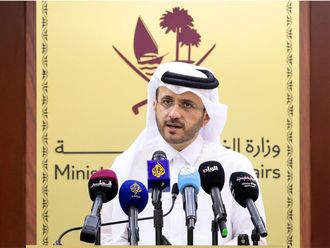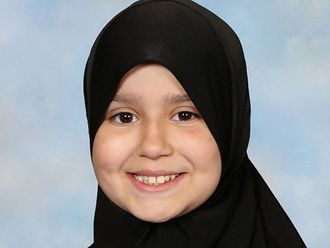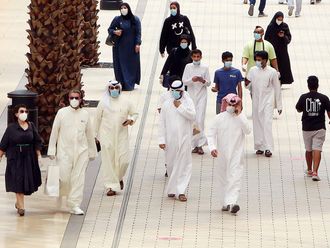
Manama: A faculty member of Weill Cornell Medical College in Qatar (WCMC-Q) is working with physicians in Qatar and elsewhere to improve treatment of ovarian cancer and decode the genetics related to the disease.
“Ovarian cancer may not be the most common cancer facing women, but it is one of the most lethal,” Dr Jeremie Arash Rafii Tabrizi, assistant professor of genetic medicine in obstetrics and gynaecology, said, quoted by Qatari daily Gulf Times.
Ovarian cancer has traditionally been difficult to detect early because while ultrasounds pick up on changes in the ovaries, they do not convey what a doctor needs to make a clear diagnosis.
The most advanced blood tests related to ovarian cancer are known to display false positives and ovarian cancer is most often clearly diagnosed after it has already spread to other parts of the abdomen.
Research is focused on ways to understand the molecular mechanisms behind this spread so it can be addressed earlier.
Dr Rafii Tabrizi is working with cancer centres in France, Singapore, Norway, Taiwan, and Lebanon to explore select ovarian cancer cases and their genetic environments, the daily said.
The high complexity of ovarian cancer in terms of its start and spread has prompted Tabrizi and his colleagues to try a new approach that involves fewer patients and a deeper analysis of the genetic expression of tumour cells and the microenvironment in each case.
“Our approach, with this research consortium, is more targeted. Some researchers say ‘we want to look at the genomics of 500 tumours.’ This kind of strategy has failed as a research tactic for ovarian cancer,” Tabrizi said.
Increasing the sample size can confuse the findings because ovarian cancer manifests very differently from person to person.
“So we are asking very specific questions about, for instance, how it extends to the peritoneum or the lymph nodes, and we’re comparing very basically the primary tumours to the metastatic lesions in carefully-selected small groups of patients.”
Tabrizi works closely in conjunction with Dr Einas Al Kuwari and Dr Emad Bin Mujeeb, consultants in anatomical pathology at Hamad Medical Corporation, Qatar’s national health provider.
At WCMC-Q, he coordinates with Joel Malek, instructor of genetic medicine and director of the genomics laboratory, to look at the disease through the lens of total RNA sequencing and epigenetic studies - methods requiring highly-sophisticated equipment capable of analysing hundreds of thousands of genetic samples at a time.
“Our contribution to the consortium involves work in the genomics core lab to view these tumors in a new setting, with new technology,” Tabrizi said.
Different forms of therapy have evolved to treat ovarian cancer and one key approach involves targeted heat therapy.












